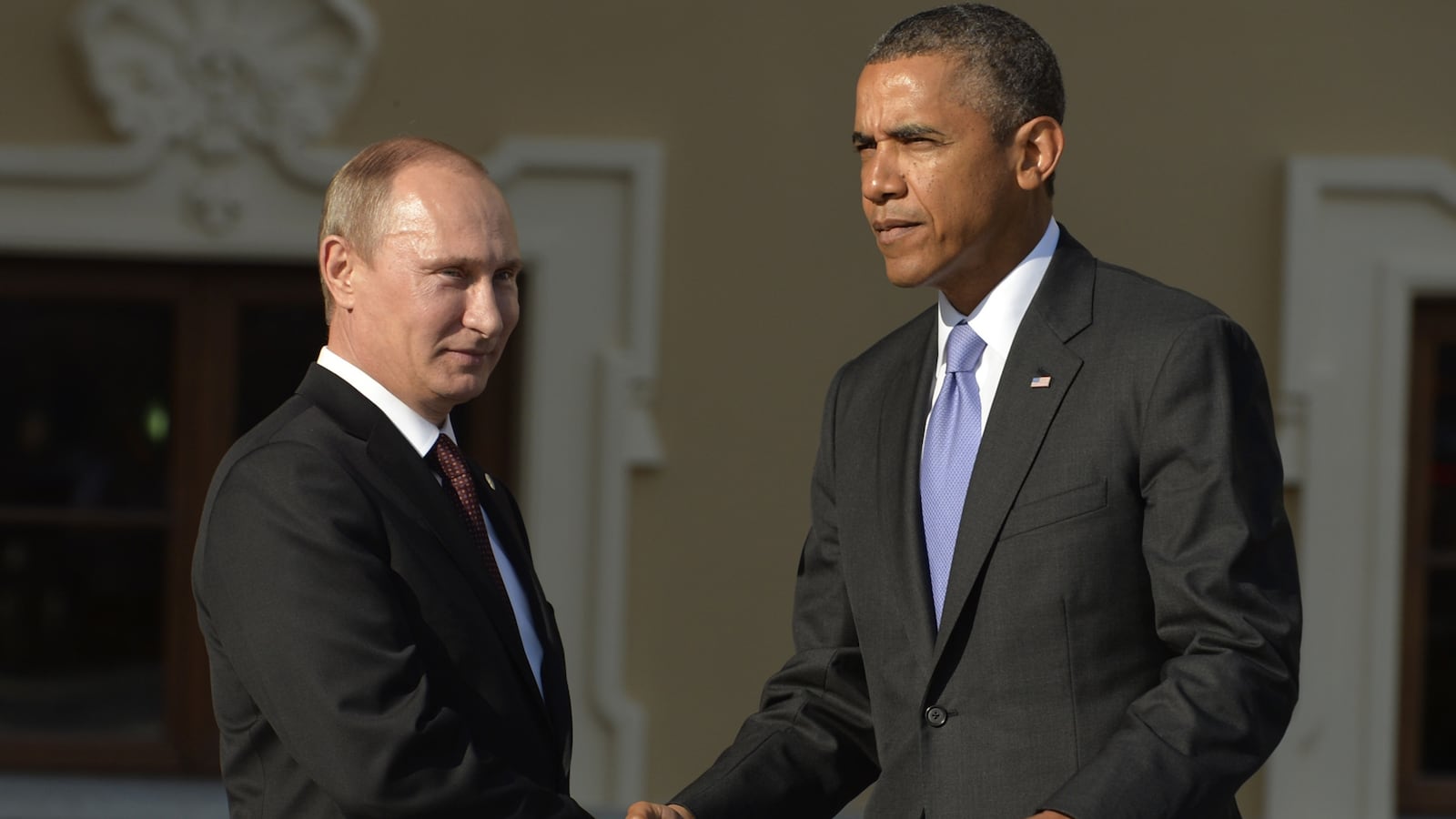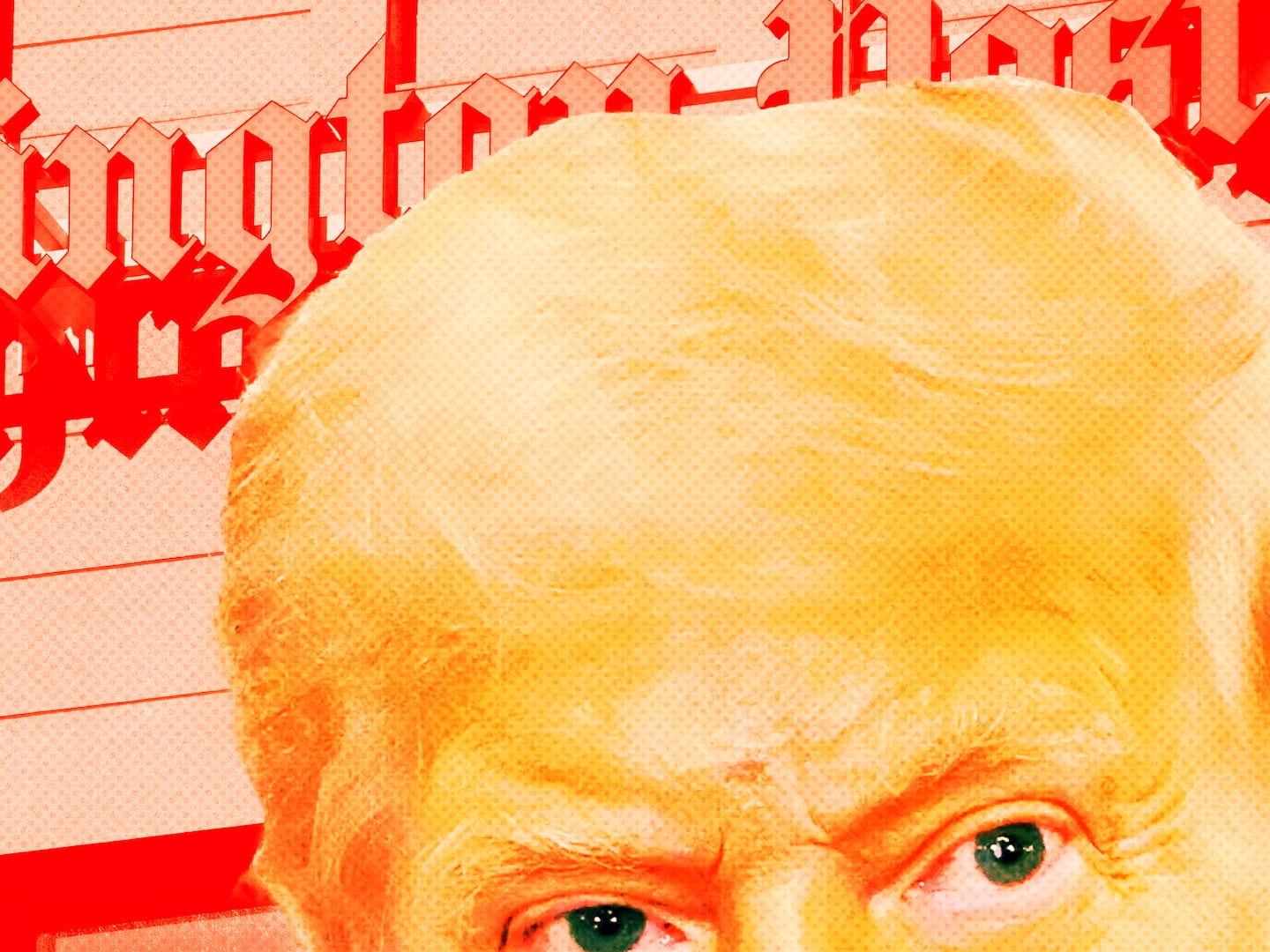President Barack Obama’s insistence that “My credibility is not on the line”—as plaintive a cry as Bill Clinton’s after the 1994 Republican sweep that he was still “relevant”—reflects a disturbing distraction inflaming the Syria debate. Millions are dismissing Obama as “weak and indecisive.” Transforming this difficult decision into a barometer of presidential credibility reflects a peculiarly American obsession with presidential potency.
Presidential power is surprisingly personal, contingent, and transient, not just institutional and consistent. America’s superpower status provides great potential, but each presidency depends on the incumbent’s skills. Presidential power, like a muscle, can strengthen if exercised effectively—or shrivel.

This Syrian mess—exacerbated by Vladimir Putin’s haughty lecturing Obama about Americans “relying solely on brute force”—confirms what the Democratic Congress’s dictating of the health care bill, the growing Democratic chorus of complaints, House Speaker John Boehner’s forcing the president to give his job speech to Congress a day later than Obama requested, Republican obstructionism, Iran’s impunity, and other insults already proved: few fear this president. Obama seemingly overlooked Machiavelli’s teaching: “it is much safer to be feared than loved.”
The presidency subjects American incumbents to perennial gut checks, testing their mettle. Emerging from a revolution against executive power, the presidency was born handcuffed. Defined by its limits, its success depended on personal characteristics, particularly virtue and courage—qualities that defined the first president, the 6’2” strong, stoic George Washington.
Translating these personal characteristics into policy terms, Washington hoped the nation would convey his “don’t tread on me” quiet strength. He advised: “If we desire to avoid insult, we must be able to repel it; if we desire to secure peace … it must be known, that we are at all times ready for War.” America’s Zen isolationism would telegraph disciplined strength, not wavering weakness.
Mimicking Washington, his successors often disdained politics by posing as virtuous statesmen. Even while popularizing the presidency, Andrew Jackson said: “one man with courage makes a majority.” Abraham Lincoln governed with the “faith that right makes might,” insisting: “we cannot escape history.”
Americans mocked cowards and shirkers. The Civil War hero Ulysses Grant dismissed Republican James Garfield for lacking “the backbone of an angleworm.” Americans prized lone pioneers, individualist entrepreneurs, principled politicians—while worrying whether their limited democratic institutions could work.
Theodore Roosevelt emphasized the macho strain shaping this leadership model. As Assistant Secretary of the Navy, he sneered that President William McKinley, who wavered about attacking Spain, had “no more backbone than a chocolate éclair.”' Roosevelt praised “the man who is actually in the arena, whose face is marred by dust and sweat and blood,” as opposed to “those cold and timid souls who neither know victory nor defeat.” In our less sexist age, Barack Obama has nevertheless found his Syria policy called “flaccid” and “impotent.”
Effective presidents cultivated a tough image. In 1932, Franklin Roosevelt cried “Judge me by the enemies I have made,” vowing to confront greedy public utilities. Rewarding friends and punishing enemies, Roosevelt distributed federal goodies like a tyrannical father doles out love, attention and allowance. Similarly, John F. Kennedy, swaggering like a sleek presidential James Bond, often quoted Dante, saying that “the hottest places in hell are reserved for those who, in a time of great moral crisis, maintain their neutrality.”
Ronald Reagan, like Obama and unlike FDR, rarely bullied party renegades or obstructionist opponents. But Reagan had to telegraph toughness to prove he was no mere actor. When he fired air traffic controllers for striking in August, 1981, many foreign investors “started pumping money into this country.”
Reagan benefited by being sandwiched between two pols frequently mocked as lily-livered. On March 15, 1980, the Boston Globe editorial analyzed yet another Jimmy Carter lecture demanding economic self-discipline. A joke headline inserted during the editing process mistakenly appeared on the first 161,000 copies, proclaiming: “Mush from the Wimp.”
Four years later, Garry Trudeau’s “Doonesbury” charged that Reagan’s Vice President George H.W. Bush “placed his manhood in a blind trust.” Before winning in 1988, Bush also endured a Newsweek cover: “George Bush: Fighting the ‘Wimp Factor.’”
The political scientist Richard Neustadt, noting the office’s limits, claimed presidents must have the power to persuade. But presidents can also reward and punish, create careers and destroy others. The job requires ruthlessness at home and abroad. America’s most successful presidents were muscular moderates, building consensus without playing the patsy—feared, respected and, if possible, as a bonus, loved.
Ironically, the world’s most powerful post triggers so much anxiety about the occupant’s frailty. Today, when presidents so dominate American culture and politics, pundits nevertheless frequently find the incumbent weak and the office weakened permanently. Gerald Ford said of courage, “no adviser can spin it. No historian can backdate it.” Our leaders have learned that no president can do without it—while few critics can resist mourning its loss.






